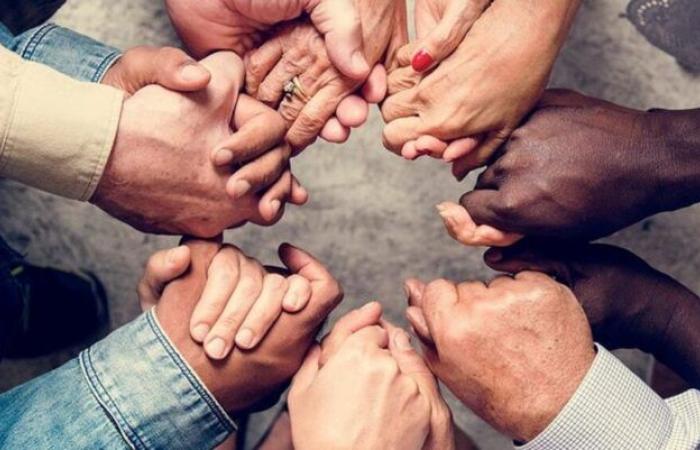For the LGBTQ +community, stress increases.
Today, perhaps more than at any time for many living Americans, our rights, our identities and our very existence are attacked. With the erasure of trans Identities of public discourse, vital medical care is increasingly restricted, and even fundamental rights such as equality of marriage are back on blocking. The growing hostility towards queer and trans persons, both legislative and socially, creates a deep and persistent feeling of discomfort.
When we think we have to remain super vigilant to exist safely, our nervous systems never have the chance to settle.
Anxiety does not only live in our minds; It takes root in our body. Panic attacks, depression and a loss of sexual desire can derail our daily life. At the same time, insomnia, altered breathing, high blood pressure and headaches create a training effect, intensifying our distress. Anxiety is often an invisible force, slowly draining our energy and making it more difficult to fully engage in our relationships, our work and our sense of self.
What makes anxiety particularly insidious is that it does not require real danger to feel like a threat.
Our perception plays an essential role here. When we believe that something threatened, our body reacts as if survival was at stake. The response to the struggle, theft, frost or faon is a natural, even necessary, mechanism, in moments of real danger. But in the case of chronic anxiety, our body is preparing for an escape that never comes, leaving us locked up in a stress cycle.
And yet, we are often told to “relax” or “do not let it reach us”. But how do we relax when the body perceives a constant threat? How to release tension when we never really feel safe? The answer is not thinking about anxiety; It is by reconnecting with our body, ultimately to love and to take care of ourselves and those who are closest to us.
Mode of realization as a path to relief
Current responses such as personal care and community holding are simple. However, they can be difficult in everyday life, aggravated by an endless cycle of stress. When anxiety manifests itself as fatigue, headache or digestive distress, even bare care acts can feel out of reach. However, in the midst of this struggle, I found something that really helps: the incarnation, a conversation with our physical body which allows us to feel our experience and to think about it.
Circles of realization for many communities emerge – in person and practically – across the country and in the world, offering a means of reconnecting with our body and finding relief. Many of these gatherings embody movement, breathing, sound, visualization and concentrated attention to help us access the wisdom of our body. Anxiety is an excellent example of the reason why this work is important. When we perceive a threat, our bodies react first. The realization practices allow us to listen to these signals, to release the stored tension and to move from reactive fear to the founded presence.
This kind of practice does not consist in making a perfect state of calm; It is a question of creating a space for awareness and providing tools to deal with disturbances and submerging healthy. In the Podcast Circle, I often talk about how the incarnation is not to get rid of anxiety; It is a question of connecting to it differently. When we develop the ability to notice what is going on in our body without immediately trying to repair or repel it, we can move our relationship with stress.
Although yoga is a well -known incarnation practice, many other traditions inform the work of today’s incarnation, which makes it accessible to many people. Somatic or body practices and breaths rooted in native traditions, martial arts, dance and even meditations focused on breath all contribute to a modern production mode. Basically, the work of incarnation invites us to explore how we move, breathe and dress our body to cultivate resilience.
Why the community counts
Just as important, these spaces promote the community. Anxiety prosperously, but when we bring together and hear someone say, I also feel itIt becomes easier to get out of the spiral. The validation of the shared experience is robust; We find relief and strength in these circles.
I often discuss the importance of “co -regulation”, the idea that the people around us deeply influence our nervous systems. When we are anxious, being with someone who is anchored and stable can help regulate our body. This is why the community is so essential. It is not only a question of talking about things – it is a question of feeling the support of others and allowing this energy to change something in us.
Many people who come to circles of incarnation express a feeling of exhaustion, not only of anxiety itself but of transport alone. They find permission to breathe, move and naturally shake tensions in these spaces. They begin to see that anxiety is not only a personal failure, but a collective experience that we can navigate together.
How to start with the practice of incarnation
If you are curious about realization practices, there are growing resources to explore. Podcasts, often free to listen and products by various members of the community, give an overview of how these practices support personal and municipal well-being. The production mode in person and online are also increasingly available, offering spaces to connect, practice and grow.
The good news is that you don’t have to wait for an official course to start. Simply taking a moment to take a break, breathing deeply and noticing what’s going on in your body is an act of incarnation. Small tensions, stretching and buzzing are small practices that can help move your nervous system. The key is consistency.
Build resilience for the coming road
In times of uncertainty, we must develop tools that help us meet the moment with strength and stability. The practice of incarnation is one of these tools, offering us the necessary self -love when external forces make us feel unwelcome or invisible. Just as an Olympian warms up, we have to prepare for these moments to engage in our lives safely, in depth and effectively.
The world may not feel safe at the moment, but we can cultivate security in ourselves. And when we do this together, we remember that we are not alone.
Timothy Bish is a coach and a male production mode facilitator with a deep yoga and acupuncture background. He is the co-founder of The Circle: A Queer Men’s amending Podcast and is passionate about the power of men’s work to the Queer community. Based in Provincetown, Tim directs the male production circle, teaches yoga, leads to head-to-head wicks and directs Helltown Fitness-in order to help people be the healthiest to live their happiest.








